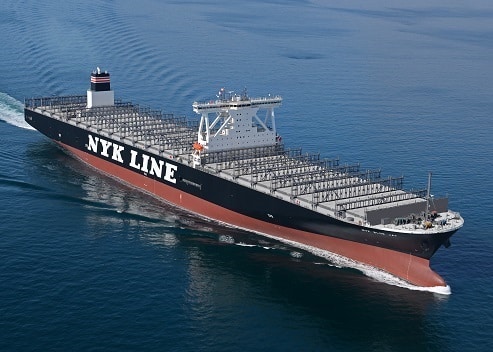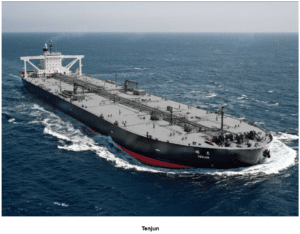NYK Begins First Long-Term Biofuel Test Run on Large Crude Oil Tanker
Compiling Sufficient Record of Safe Navigation to Facilitate Decarbonization of Marine Transportation

Nippon Yusen Kabushiki Kaisha (NYK) has initiated a long-term biofuel test on its very large crude oil tanker (VLCC) Tenjun. The vessel, which first received biofuel in Singapore, will use this fuel for approximately three months. This trial aims to thoroughly verify the safe and stable procurement of biofuel for extended use.
While NYK has previously conducted numerous short- and long-term biofuel safety trials on bulk carriers, car carriers, and liquefied petroleum gas (LPG) carriers, this marks the first time an NYK-operated VLCC is undergoing a long-term biofuel trial.
Biofuels are produced from organic resources (biomass) such as agricultural residues and waste cooking oil. When combusted, biofuels are considered to have virtually zero carbon dioxide (CO2) emissions. Since they are compatible with heavy-oil-powered ship engines, which are common on large merchant ships, biofuels are seen as a crucial step in reducing greenhouse gas (GHG) emissions during the transition from heavy oil to zero-emission fuels.

Vessel Particulars
- Length: 330.00 meters
- Width: 60.00 meters
- Gross Tonnage: 159,927 tons
- Deadweight Tonnage: 302,108 tons
- Year Built: 2008
- Shipbuilder: IHI Marine United Shipbuilding Corporation (Kure City, Hiroshima Prefecture)
Biofuel
Biofuels, refined through the methyl esterification of vegetable oils, are expected to serve as an alternative to petroleum-derived heavy and light oils. Although biofuels emit CO2 during combustion, the CO2 absorbed by plants during their growth offsets these emissions. This balance renders the CO2 emissions from biofuel combustion virtually zero, positioning biofuels as a carbon-neutral substitute for fossil fuels.
